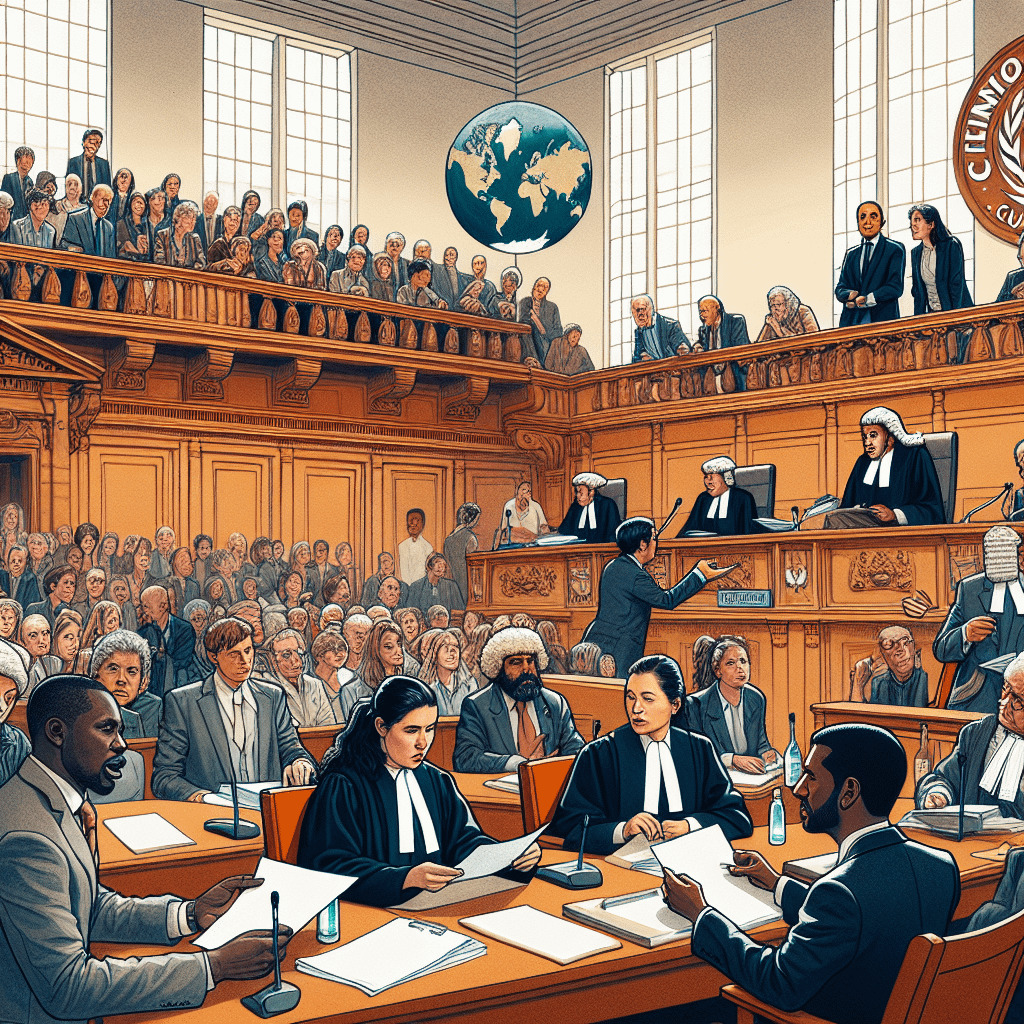THE HAGUE, Netherlands — A closely-watched international climate case that could yield guidance for governments around the world wrapped its first week of arguments before the top court of the United Nations in The Hague Friday. The case, though not binding, is expected to spell out what countries are legally required to do to combat climate change and help vulnerable nations fight its devastating impact.The push for the International Court of Justice to hear this case comes — like much of the call to address climate change — from island nations who are losing territory and fear they could disappear under rising seas. The U.N. General Assembly asked the court last year for an opinion on “the obligations of States in respect of climate change.”“The stakes could not be higher. The survival of my people and so many others is on the line,” Arnold Kiel Loughman, attorney general of the Pacific island nation of Vanuatu, told The Hague-based court. For years his country has spearheaded calls for reductions of the greenhouse gases that are causing sea ice to melt and oceans to expand, making the seas rise. Vanuatu led this push for international legal intervention as well.Fifteen judges from around the world must now answer two questions: What are countries obliged to do under international law to protect the climate and environment from human-caused greenhouse gas emissions? And what are the legal consequences for governments when their acts, or lack of action, have significantly harmed the climate and environment?With 99 participating countries, it is the largest case in the court’s history. Countries including Vanuatu, Chile and the Philippines want countries like the United States, China and Russia to reduce their emissions and provide financial help to alleviate the devastating impact of climate change that they feel endangers their very existence. “This is a crisis of survival. It is also a crisis of equity. Fiji contributes 0.004 percent of global emissions but our people bear the brunt of climate impacts. In climate-vulnerable nations, marginalized groups ⎯ women, children and the poor ⎯ are disproportionately affected,” Luke Daunivalu, Fiji’s ambassador to the United Nations, said. The South Pacific island nation spoke directly after the United States and Russia, both of whom are major petroleum-producing states and staunchly opposed to the court mandating emissions reductions. Instead, what the United States and other major greenhouse gas emitters want the court to do is defer to the landmark Paris Agreement, in which countries agreed to keep global warming to a 1.5 degree C (2.7 F) limit. The world has already warmed 1.3 degrees C (2.3 F) since pre-industrial times because of the burning of fossil fuels. Between 1990 and 2020, sea levels rose by a global average of 10 centimeters (3.9 inches) and parts of the South Pacific have seen significantly more.“States designed this international legal framework to address the

